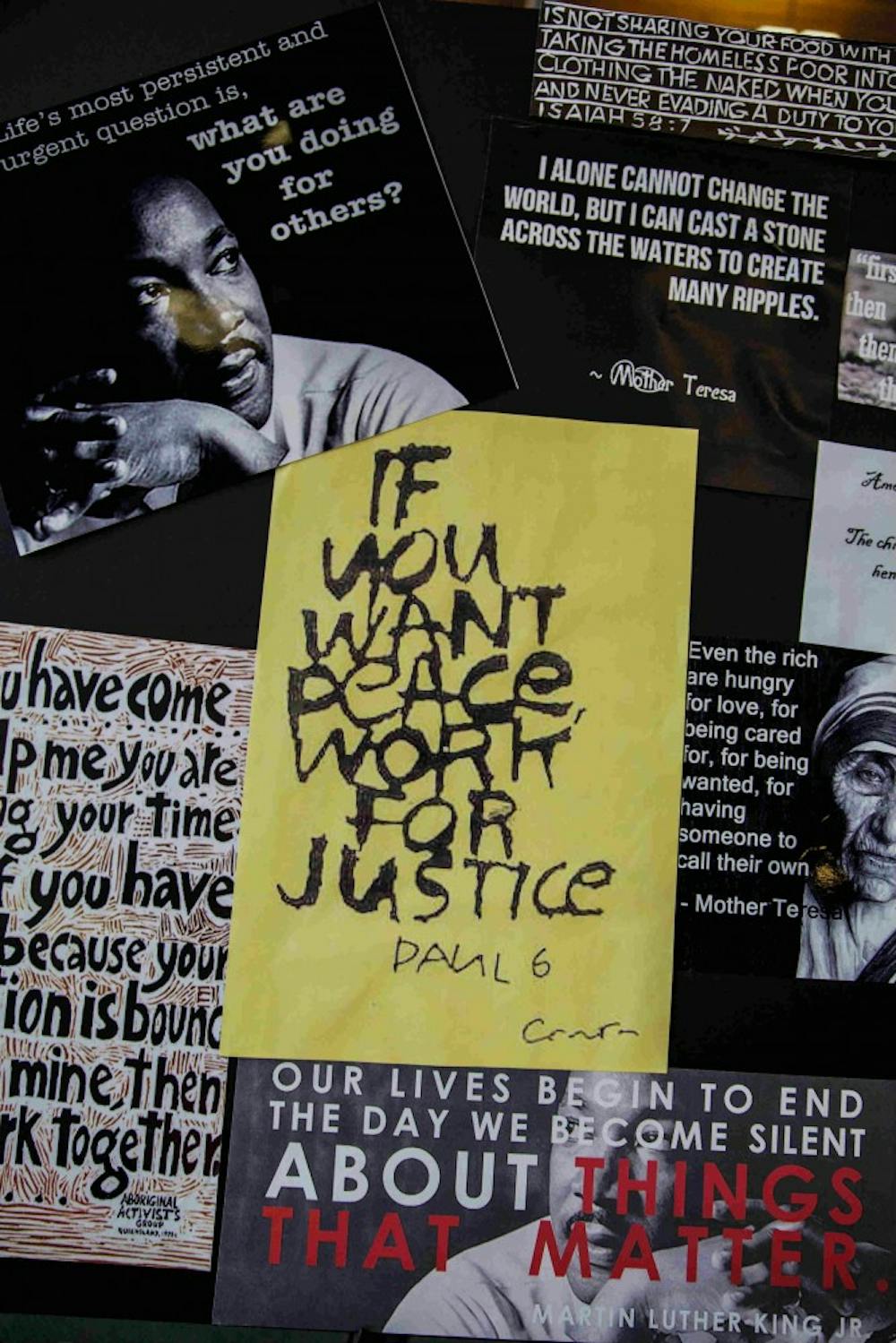By Hannah Haney | Echo
In the summer of 1963, a man stood in front of the Lincoln Memorial and delivered a 17-minute speech famously titled "I Have A Dream." Fifty-one years later, millions of people still gather together to remember the legacy of Martin Luther King Jr.
According to Cecilia Macias, director of intercultural programs and coordinator of the event, Taylor didn't begin to celebrate Martin Luther King Jr. Day (MLK Day) until 1992, when a group of students demanded that the school take a day to celebrate and study King's legacy.
"After that, Taylor has just really cared about the day as a whole," Macias said. "A lot of times students see it as a three-day weekend, but our intention is for it to be an educational day, where students can focus on these things related to racial reconciliation and social justice."
MLK Day fell on Jan. 20 this year and was observed with a suspension of classes, a special chapel speaker, five seminars and a musical guest in the evening. The theme for this year was "Courage: Take a Stand for Justice."
"We thought it was a prevalent topic/issue," Macias said. "Because Martin Luther King not only just stood for racial reconciliation, but he stood for social justice."
This year's chapel speaker was Commissioner Israel L. Gaither, who was the first American Chief of Staff for the Salvation Army. Gaither's presentation encouraged students to rise up against injustice.
"I want them to come away with understanding that there is a better way, a more effective way, and that's the Kingdom way, rooted in biblical values," Gaither said. "And if an individual who heard that message today will leave here and say 'I'm really going to make myself available to God in a radical way,' he or she won't fail."
Several seminars were given on varying topics including "Meaning + Communication = Connection," taught by Linda Manganello, assistant professor of communication, senior Claire Romanowski and senior Cameron Boehning. Al Harrison, department chair and professor of music, taught a seminar connecting the evolution of Motown Music to the civil rights movement.
Associate Dean of Students and Director of Calling and Career Office Drew Moser gave a presentation entitled "MLK = 'I hate being white day?': Exploring white guilt in light of Martin Luther King's legacy."
"I tried to develop a case that there is a distinct kind of white racial identity and along with that comes significant privilege and responsibility to understand that we have kind of the upper hand in most areas of life," Moser said. "Therefore, our call is to become an ally to those from underrepresented groups."
Stephen Messer, professor of history, discussed the history of the civil rights movement, focusing particularly on Freedom Summer, a civil rights campaign that took place in Mississippi in the summer of 1964.
"It took incredible courage to go to Mississippi and be a civil rights worker in 1964, whether you were black or white," Messer said. "I would want students to appreciate that level of courage and also particularly to connect with the thousand or so college students from the north who dedicated 10 weeks of their summer to go down to Mississippi."
That evening, musical group Horizon performed the Legends of Motown and More concert in Rediger Chapel. Faculty and students clapped their hands to the songs of Motown greats like Smokey Robinson and the Jackson Five, and the band members even donned afro wigs and disco gear at one point.
Although Martin Luther King Jr.'s speech was given over 50 years ago, the issues he stood for are still important.
"What he started hasn't ended yet," said Maribel Cornejo, Master of Arts in Higher Education (MAHE) student and American Ethnic Student President. "Yes, he fought for racial reconciliation and social justice, but in today's world, even though we have improved in a lot of areas, there's a lot of improvement that needs to be done."
Gaither encouraged students to remember the issues of racism and social injustice beyond MLK Day.
"The problem is Monday (MLK Day) is the good day," Gaither said. "The problem is Tuesday and Wednesday and Thursday, when Monday kind of fades off. We want this to stay with us, become integrated as a part of our lifestyle."




